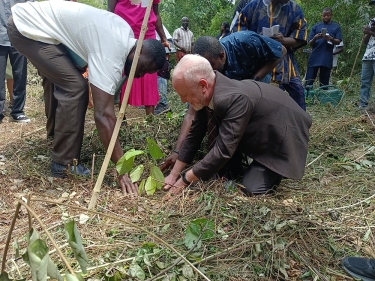EFI’s IUFRO 2024 highlights
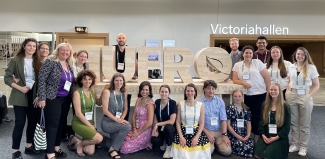
EFI’s IUFRO 2024 highlights
How can forest innovation, research, science and traditional knowledge contribute to decision-making for better societies and achieving a positive change?
On 23–29 June 2024, some of our researchers attended the IUFRO Congress in Stockholm, Sweden, to present their work, chair sessions, moderate poster presentations, and network with other scientists from different fields across the globe.
Here are some of our event highlights.
Embracing the future: circular bioeconomy and innovation
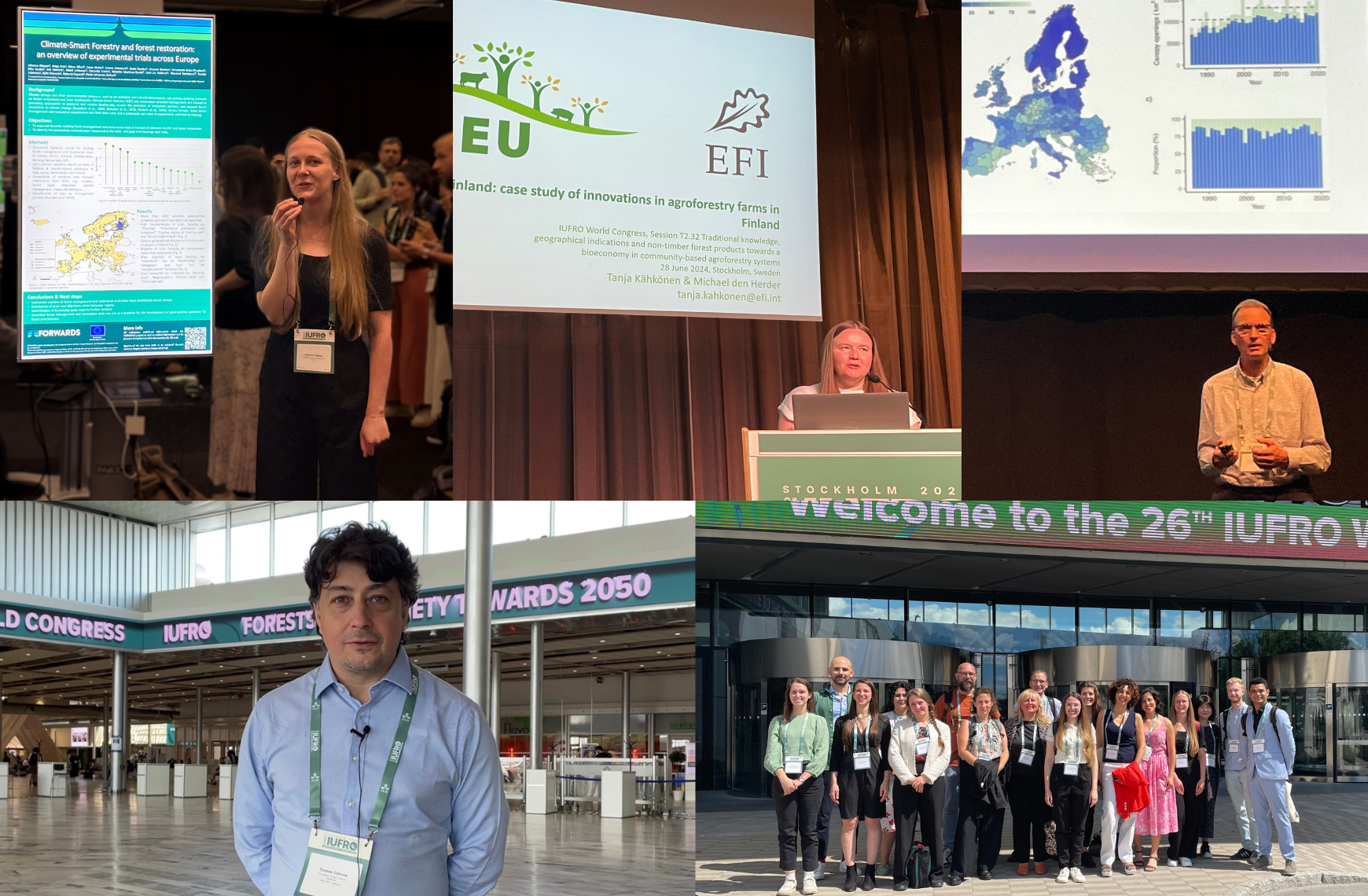
Finding sustainable pathways is crucial to address climate change and other environmental issues.
“My work relates to understanding the wood utilisation in Europe, including their end-use markets. This topic touches multiple areas within forest research,” said Cleo Orfanidou, Researcher, who won the best poster award during the conference with the study about next-generation carbon stock and stock change modelling in wood use. The work is part of the ForestPaths, Eco2Adapt and MoniFun projects.
It is also important to consider how stakeholders involved in the transition view and understand bioeconomy. “There is a need to raise awareness in terms of forest bioeconomy, products and innovations”, said Venla Wallius, Researcher, whose research currently focuses on public perceptions towards forests within the Martelkom project and wood-based innovations. One of Venla’s posters focused on insights into life-science students’ views on bioeconomy entrepreneurship.
Diana Tuomasjukka, Head of the Bioeconomy Programme, and Venla Wallius also co-chaired a session at the conference titled “Perception – Awareness – Choice. How Forest Bioeconomy Becomes a Reality”, where Siebe Briers, Expert, presented a comparative study of government and industry perceptions of the bioeconomy in nine European regions.
“At EFI’s Bioregions Facility, innovation is one of our main work areas. We aim to catalyse forest bioeconomy business and innovation to accelerate progress and knowledge uptake through pitching events, open innovation challenges, online matchmaking and strategic partnerships,” said Siebe Briers.
Promoting equality and social inclusion in forestry
“EFI’s International Partnerships Facility promotes equality in the forest- and land-use sectors. It does so by making analyses, raising awareness, and integrating equality aspects in projects,” said Thomas Colonna, Value Chain & Smallholder Expert, presenting cases from the Mekong region’s small-scale forest sector.
Thomas Colonna took part in the panel discussion of the session on work and employment in the forest sector. Watch his summary here.
Resilience and agroforestry insights
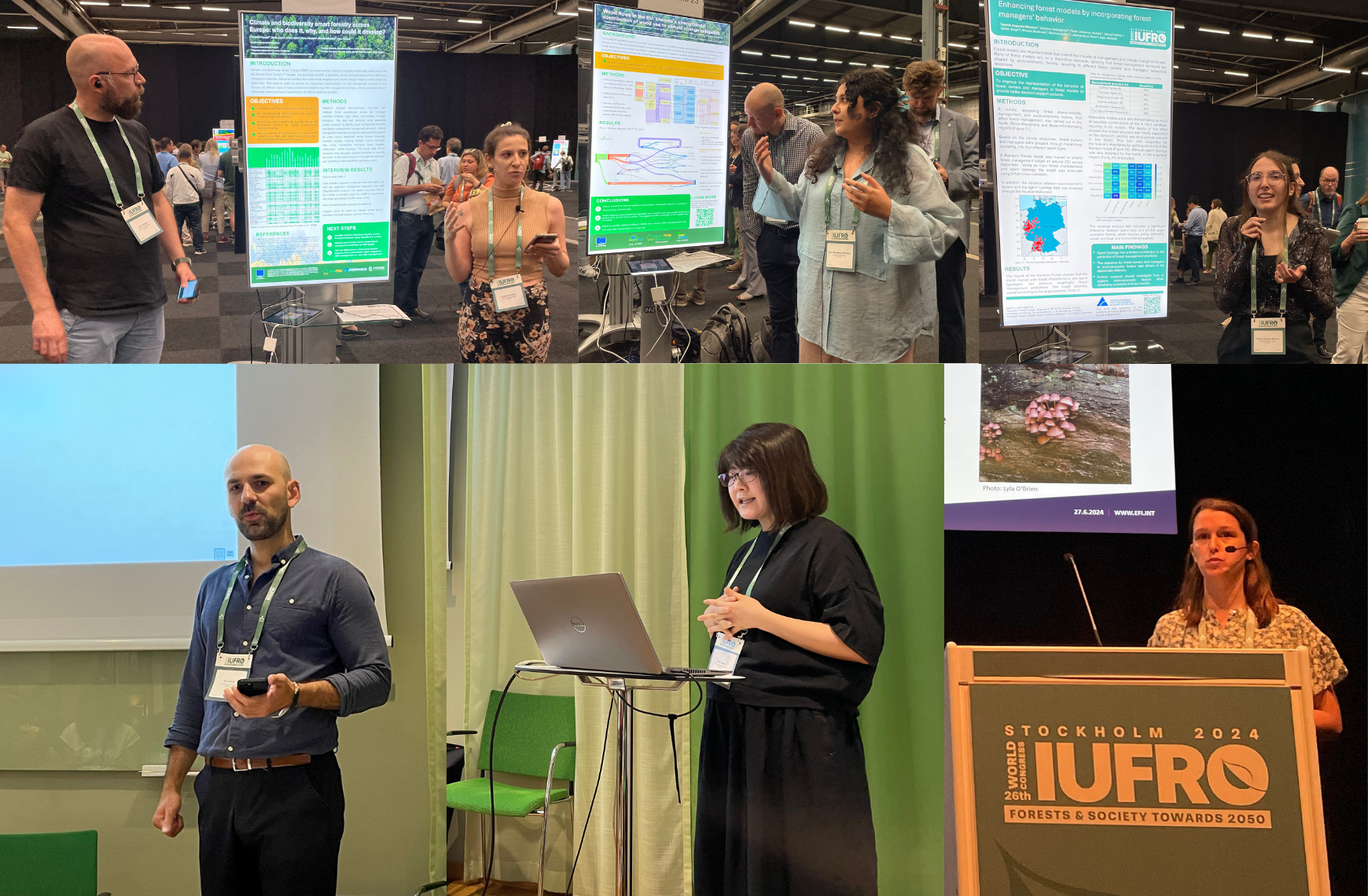
EFI is involved in projects and initiatives focused on improving forest resilience to climate change.
“In EUFORE, we are creating a sustainable environment to develop a research and innovation agenda for forest-based value chains in Europe and beyond. We demonstrate how forest-related sciences, research, and traditional knowledge can guide decision-making for positive change,” said Alex Giurca, Principal Scientist.
The EU Horizon 2020 project SUPERB aims to restore forest landscapes across Europe. At the Congress, Elisabeth Schatzdorfer, Principal Scientist, presented systemic approaches to scale up urgent ecosystem restoration for forest biodiversity and ecosystem services. The SUPERB documentary was also launched at the Congress.
EFI’s work with stakeholders and agroforestry was also highlighted. “I work with two Horizon Europe CSA projects: AF4EU and FOREST4EU. Both projects aim to raise awareness, disseminate information, and enhance stakeholder networking. The work we do is directly related to innovation in forestry and agriculture, climate-smart forestry and agriculture, agroforestry, circular bioeconomy, and European forest governance through increasing the capacities of different stakeholders to have a broader understanding of the possibilities of agroforestry for socioeconomics and environment in the future”, said Tanja Kähkönen, Researcher.
Fostering connections: networking and scientific collaboration
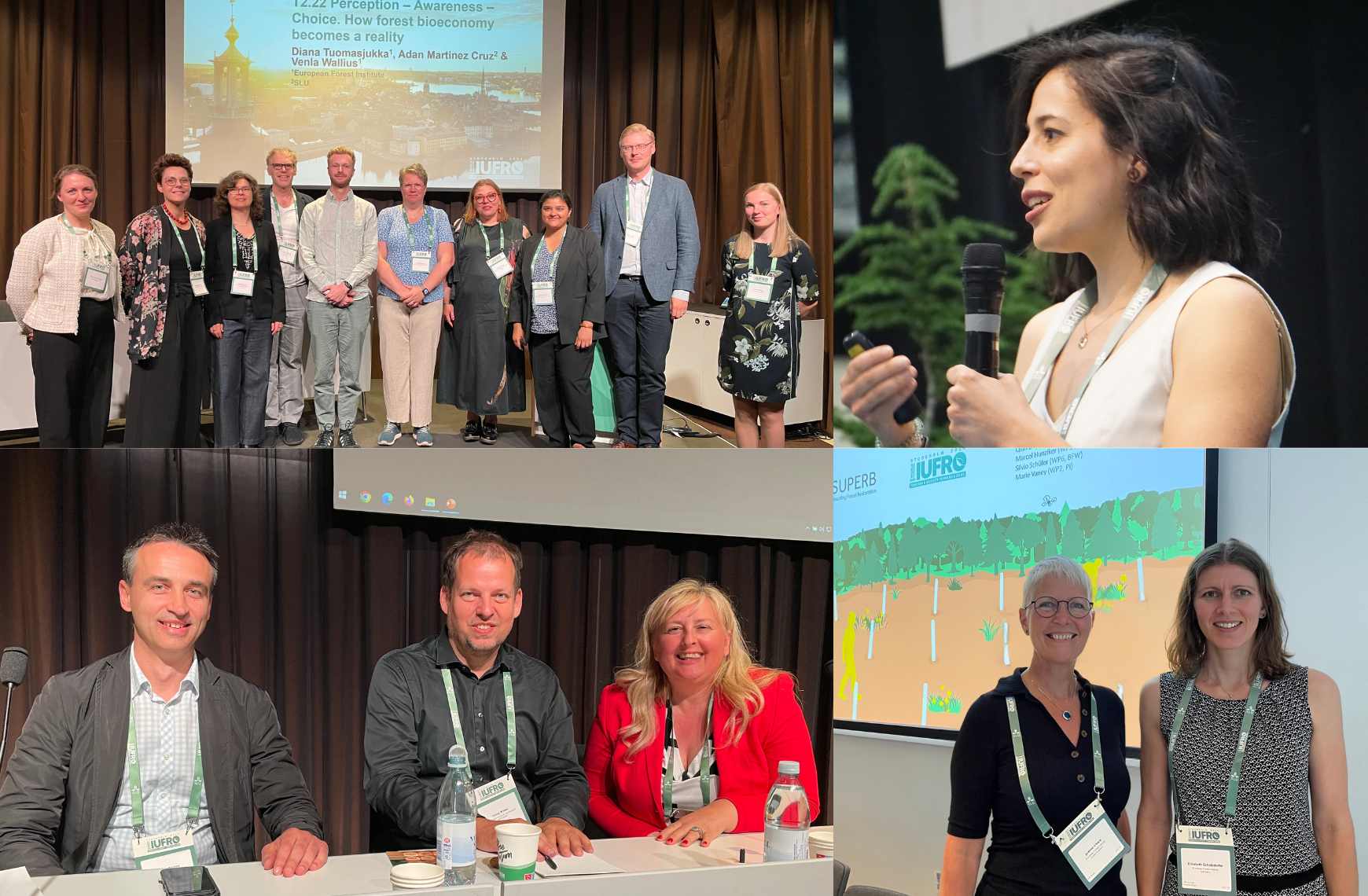
"The IUFRO event gave us the space to gather so many knowledgeable people from all over the world and, at the same time, get to know the local forest activities of the Swedish forests. My take-home message is that we need to think “globally local”. Climate change is a global problem threatening the future of our forests, but the potential solution comes from understanding the local problems. Open minds and teamwork are the key!” said Sara Uzquiano, a Researcher for the Resilience Programme. She presented work on the Resonate, ForestPaths and Forwards projects.
Bridging the gap between science and policy is crucial in forestry. Helga Pülzl, Assistant Director for Policy Support, co-chaired the “Governing EU’s Forests: Policy Narratives, Perception and Power” session, facilitating relevant discussions. “Meeting colleagues from all continents and disciplines in one space to discuss forest governance issues was my highlight for this event”, she said.
Visit EFI at IUFRO 2024, read the papers presented at the congress and learn more about our researchers and projects.
